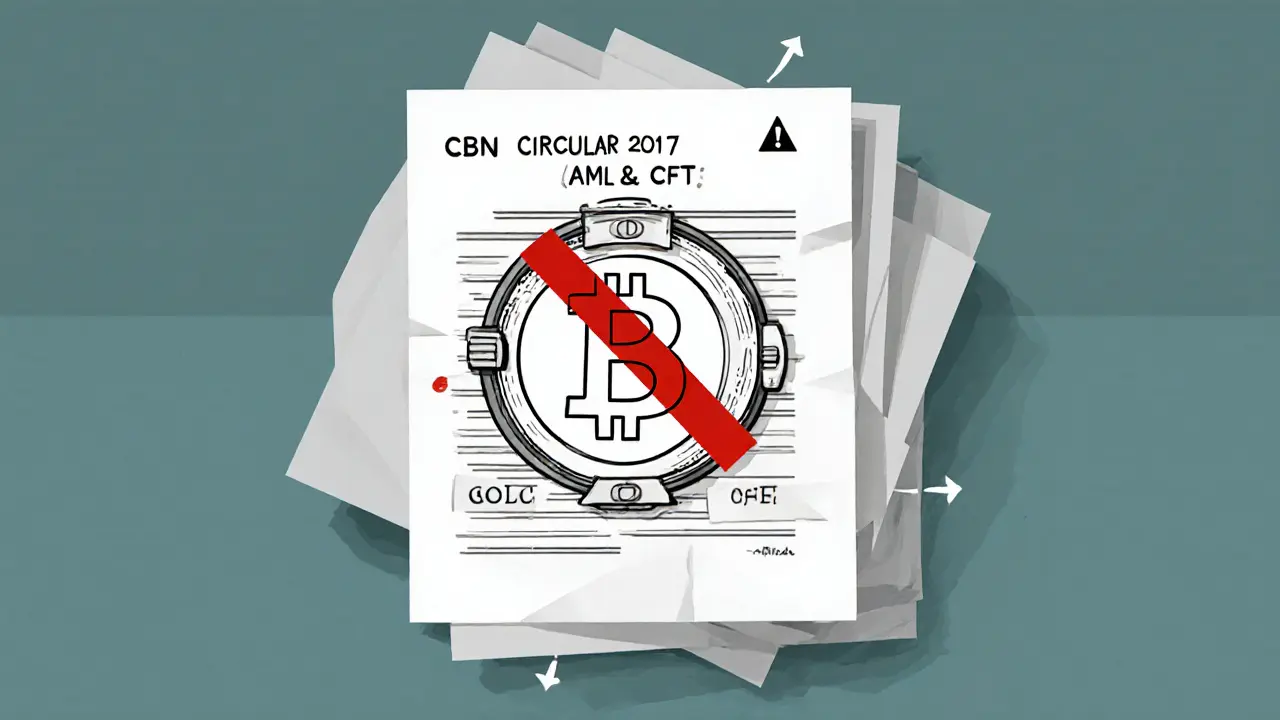Nigeria Crypto Regulation: What You Need to Know
When dealing with Nigeria crypto regulation, the collection of laws and guidelines that control how digital assets are issued, traded, and serviced in Nigeria. Also known as Nigerian digital asset framework, it shapes the entire crypto ecosystem, from DeFi platforms to fiat on‑ramps. In simple terms, the rules decide who can offer crypto services, what taxes apply, and how users protect their money.
The most influential body behind these rules is the Central Bank of Nigeria (CBN), the country's monetary authority that issues licenses and monitors financial stability. The CBN’s primary goal is to prevent fraud and protect the local currency, so it requires every crypto exchange to obtain a digital asset license. This licensing step includes proving sufficient capital, implementing strong security measures, and reporting suspicious activity. In practice, an exchange without a CBN license can be shut down, and its users may lose access to funds.
Speaking of crypto exchanges, online platforms where users buy, sell, or trade digital tokens are the front line of compliance. They must integrate Know‑Your‑Customer (KYC) checks, keep transaction logs, and cooperate with regulators during audits. For traders, this means you’ll often need to upload ID documents and verify your phone number before you can trade. Exchanges that ignore these rules risk heavy fines or being blocked from operating in Nigeria altogether.
Another pillar of the framework is AML compliance, anti‑money‑laundering measures that detect and prevent illicit financial flows. The CBN mandates that every crypto service provider run real‑time monitoring for suspicious patterns, file regular reports, and train staff on compliance best practices. For users, this translates to extra prompts when moving large sums or converting between crypto and naira. While it adds a few steps, AML rules help keep the market safe and reduce the chance of scams.
All these pieces—licensing, exchange responsibilities, and AML checks—connect to form a cohesive system that balances innovation with consumer protection. If you’re a beginner, the most immediate action is to choose a CBN‑licensed exchange and complete the KYC process. Experienced traders should stay updated on any changes to the digital asset license criteria, as the CBN frequently revises thresholds for capital reserves and security audits. Keeping an eye on official CBN announcements can give you a head start before new rules take effect.
Practical Tips for Navigating the Rules
First, verify the exchange’s license status on the CBN website before depositing any funds. Second, maintain clear records of every transaction; this makes reporting easier if the regulator asks for details. Third, consider using a multi‑factor authentication app to boost account security—most licensed platforms support it. Finally, watch out for unofficial airdrops or “quick‑rich” schemes; they often bypass the regulatory framework and can result in lost assets.
With these basics covered, you’re ready to explore the articles below. They dive deeper into specific exchange reviews, the impact of AML on DeFi, and how Nigeria’s evolving stance compares to other jurisdictions. Whether you’re just starting out or sharpening your compliance toolbox, the collection offers actionable insights to help you trade smarter under Nigeria crypto regulation.
Nigeria’s Crypto Policy: From CBN Ban to VASP Guidelines (2017‑2025)
Explore how Nigeria's Central Bank shifted from a 2017 crypto ban to regulated VASP guidelines by 2025, covering key policies, compliance steps, and market impact.
VIEW MORE
